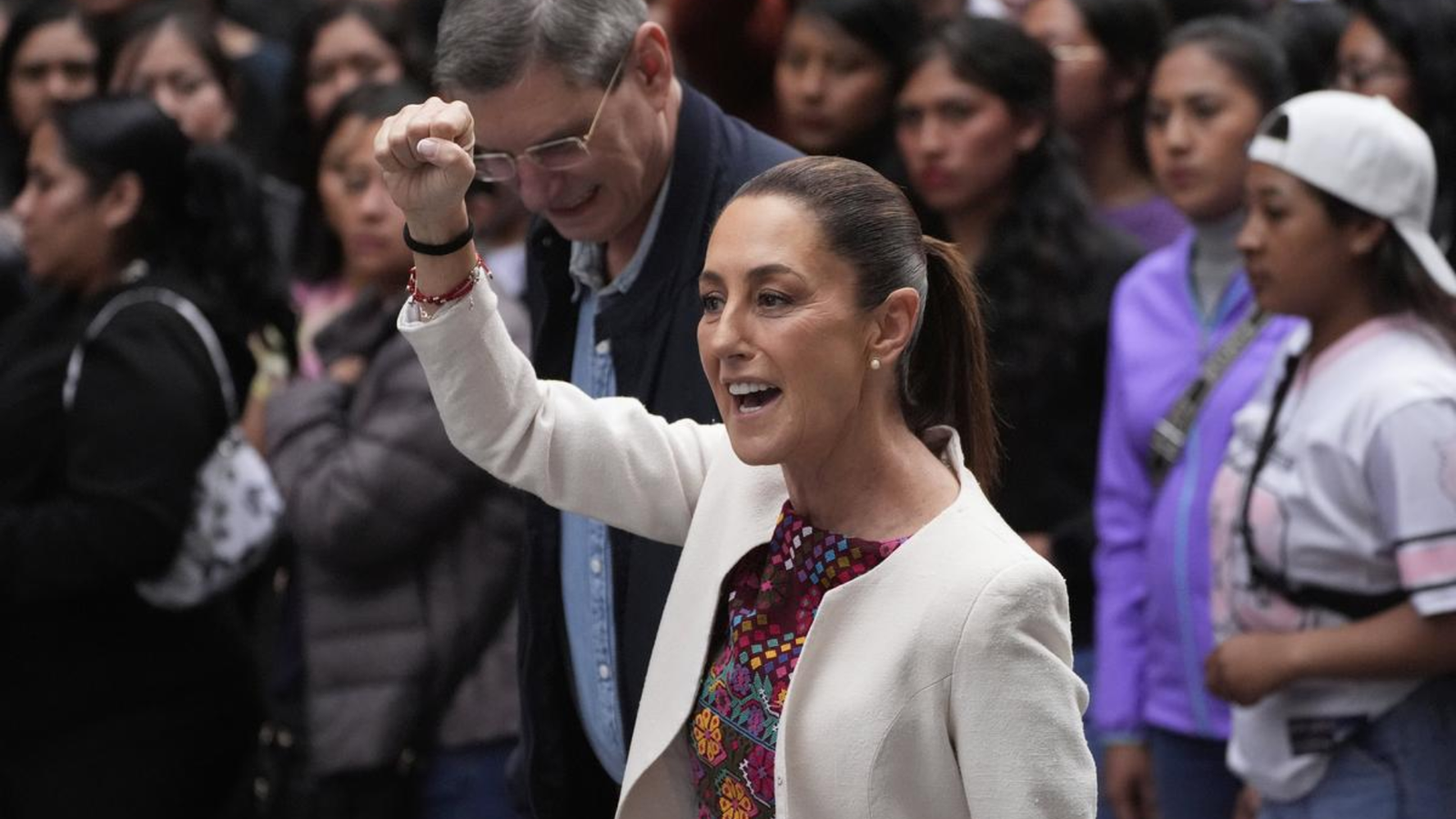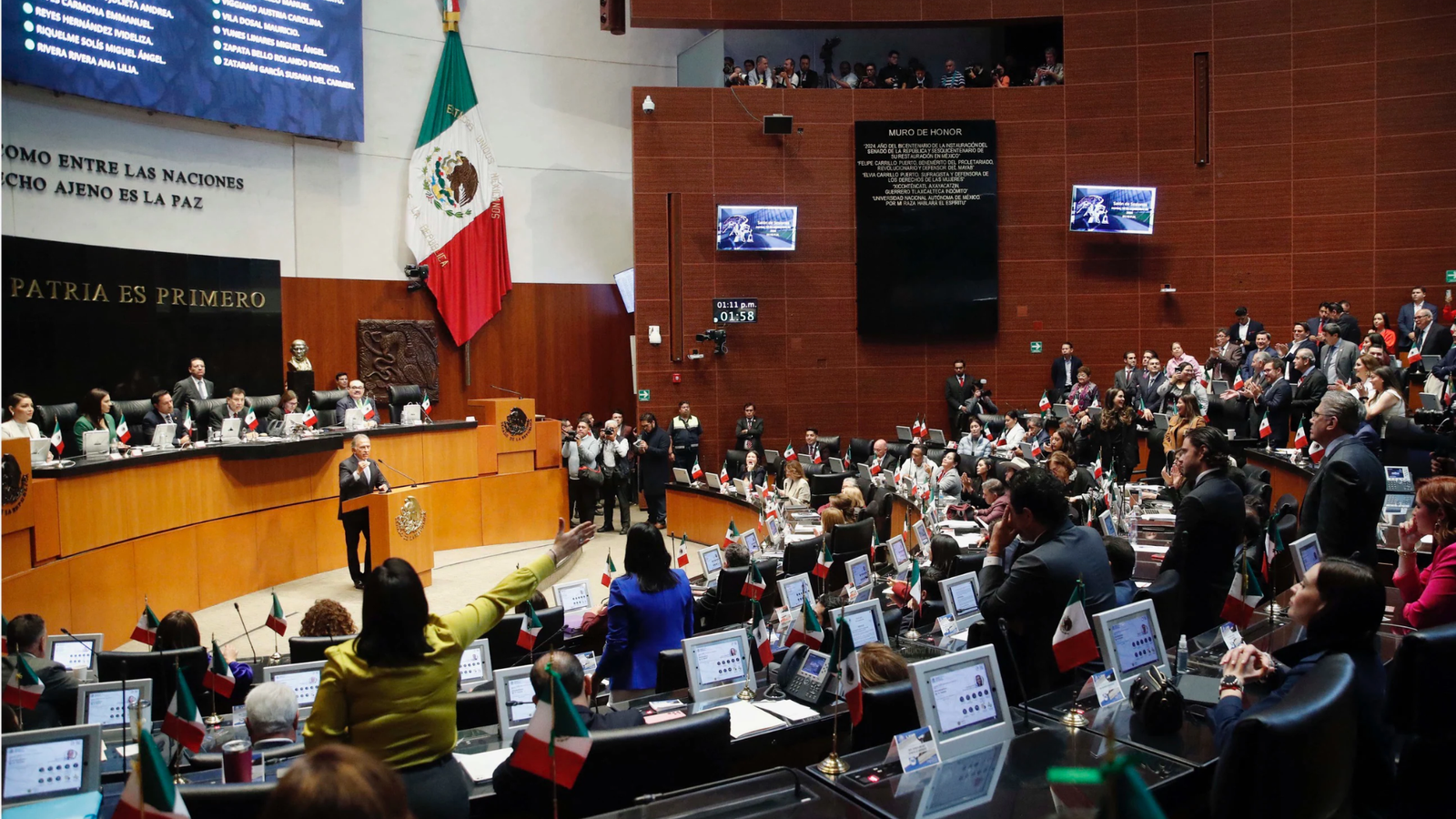Judicial Independence in Mexico: A Landmark Moment in Legal History
In a transformative moment for Mexico’s democracy, the country held its first-ever national judicial elections on June 2, 2025. Nearly 900 federal and state judges were elected directly by voters in an unprecedented effort to reshaping the judiciary and challenging the future of judicial independence in Mexico. The elections took place in 19 of Mexico’s 32 states and were the centerpiece of a sweeping judicial reform initiated by former President  Andrés Manuel López Obrador and implemented by his successor, President Claudia Sheinbaum.
Andrés Manuel López Obrador and implemented by his successor, President Claudia Sheinbaum.
While the reform was introduced under the banner of anti-corruption and public accountability, early results suggest that the ruling Morena party has swept a majority of key judicial posts. This outcome has ignited a national and international debate about the future of judicial independence in Mexico.
Why Judicial Independence in Mexico Needs Reform
The judicial independence in Mexico has long been under threat due to perceptions of corruption, elitism, and lack of transparency. Critics argued that traditional appointment processes allowed political elites to control the courts from behind closed doors.
To combat this, the Morena government proposed direct elections of judges by the public—arguing that transparency and accountability would increase if citizens could choose who interprets the law.
President Sheinbaum described the reform as a “democratic milestone that brings the judiciary closer to the people.” However, legal experts say it may do the opposite by allowing partisan politics to infiltrate what should be a neutral, independent branch of government.
Morena’s Stronghold and Its Impact on Judicial Independence in Mexico
Preliminary data shows that more than 70% of the winning judicial candidates are either affiliated with or endorsed by the Morena party, which already controls both houses of Congress and the presidency.  This raises alarming questions about the erosion of judicial independence in Mexico and the concentration of power in the hands of one political movement.
This raises alarming questions about the erosion of judicial independence in Mexico and the concentration of power in the hands of one political movement.
Key highlights from the results:
- In Mexico City, all 27 judge seats went to Morena-endorsed candidates.
- In the states of Oaxaca and Veracruz, Morena swept over 85% of judicial races.
- Several judicial watchdog groups reported low transparency in candidate vetting processes.
Market and Investor Reactions to Judicial Independence in Mexico
The private sector has responded nervously to the election results. International investors and financial analysts fear that politicizing the judiciary could undermine property rights, contract enforcement, and legal certainty—all of which are vital to a stable investment climate.
“Markets prefer rule of law and judicial independence. This new system introduces too much uncertainty,” said Luis Martínez, a senior economist at BBVA México.
Stock markets in Mexico dipped 1.8% on the Monday following the election amid investor anxiety.
Legal Community Concerns Over Judicial Independence in Mexico
Lawyers, judges, and legal scholars have been among the most vocal critics. Many warn that turning the judiciary into an electoral battleground introduces populist pressures and short-term political agendas into a system that is meant to provide long-term stability and impartial justice.
“We’re replacing backroom deals with popularity contests,” said Dr. Ana Laura Ramírez, a constitutional law professor at UNAM. “The risk is that voters may elect judges based on slogans, not legal expertise.”
International Response to Changes in Judicial Independence in Mexico
Reactions from international observers have been measured but cautious:
- United States: The U.S. State Department emphasized the importance of “independent and impartial judicial systems” in upholding democratic norms.
- European Union: Called for “close monitoring” of how judicial rulings evolve under the new system.
- Human Rights Watch: Warned that “politically-driven courts may be more reluctant to challenge government overreach or protect marginalized groups.”
Public Opinion: Divided and Cautious
A Gallup México poll conducted post-election found the nation deeply divided:
- 45% support the election reform as a step toward transparency.
- 40% fear increased political interference.
- 15% remain undecided or unaware of the reform’s consequences.
Many younger voters supported the idea of electing judges, while older and more urban populations expressed skepticism.
What’s Next for Mexico’s Judiciary?
With the new judges expected to assume office in August 2025, legal observers will closely monitor:
- Whether newly elected judges uphold constitutional checks and balances.
- How the courts handle politically sensitive cases.
- Whether the election leads to real reform or further politicization.
Additionally, civil society organizations are calling for oversight mechanisms and transparent evaluation systems to ensure that judges remain impartial and competent.
A Democratic Innovation or Democratic Risk?
Mexico’s 2025 judicial elections represent an ambitious, unprecedented experiment in legal democratization. While intended to root out corruption and bring citizens closer to justice, the early dominance of the Morena party raises red flags about the erosion of judicial independence.
As President Sheinbaum moves forward with her broader political agenda, the world will be watching whether Mexico’s new legal system serves justice—or power.




